She teetered on the verge of tears and laughed out loud. She pounded a table with her fists and snapped at lawmakers Wednesday.
And once again, Secretary of State Hillary Rodham Clinton accepted blame for the death of U.S. Ambassador J. Christopher Stevens and three other Americans in the Sept. 11 terrorist attack on the U.S. diplomatic outpost in Benghazi, Libya, but repeatedly deflected criticism of the Obama administration’s handling of the attack and its aftermath.
With a dramatic flair, Mrs. Clinton displayed the full spectrum of emotions during two highly anticipated and highly charged congressional hearings Wednesday, revisiting one of the most bitterly contested and controversial episodes of her tenure as secretary of state.
“As I have said many times since Sept. 11, I take responsibility,” Mrs. Clinton told senators early in the day, before choking up as she recalled how she stood with President Obama as U.S. Marines “carried those flag-draped caskets off the plane” and put her “arms around the mothers and fathers, sisters and brothers, sons and daughters” of those killed in the Benghazi attacks.
But moments later, Mrs. Clinton clashed with a string of Republican senators as she tried to explain and defend the Obama administration’s inaccurate initial characterization that the Benghazi attack began as a protest to a U.S.-made Internet video that denigrated Islam’s Prophet Muhammad.
Her voice rising in anger and frustration, Mrs. Clinton challenged Sen. Ron Johnson directly when the Wisconsin Republican questioned what he said were the administration’s shifting accounts of the attack and its genesis.
“Was it because of a protest, or was it because of guys out for a walk one night who decided they’d go kill some Americans? What difference, at this point, does it make?” Mrs. Clinton said, her hands chopping the air at the witness table.
The Wisconsin Republican had asked why, five days after the Benghazi attack, the Obama administration’s ambassador to the United Nations, Susan E. Rice, appeared on a string of news talk shows with assertions that the attack began as a protest against the YouTube video “Innocence of Muslims.”
Mr. Johnson — who pushed what has for months been a Republican charge that Mrs. Rice had been “purposefully misleading the American public” with her appearances on the talk shows — asked Mrs. Clinton directly why “we were misled that there were supposedly protests” outside the Benghazi mission before the attack.
“With all due respect, the fact is we had four dead Americans,” Mrs. Clinton shot back as the exchange grew heated.
State Department officials did not immediately question survivors of the attack about whether there had been a protest, Mrs. Clinton said, adding that the FBI was preparing to investigate the assault.
“Our most immediate concern, was, No. 1, taking care of their injuries,” she said. “We did not think it was appropriate for us to talk to them before the FBI conducted their interviews.”
“Now, honestly, I will do my best to answer your questions about this, but the fact is that people were trying in real time to get to the best information,” she added.
Democrats on defense
Democrats defended Mrs. Clinton during the Senate Foreign Relations Committee hearing early in the day and later during a hearing before the House Foreign Relations Committee.
“Clearly, mistakes were made,” said Rep. Eliot L. Engel, New York Democrat.
“But let’s be absolutely clear: President Obama was not responsible for the Benghazi attack any more than President Reagan was responsible for the Marine barracks tragedy in Beirut or President George W. Bush for 9/11,” he added, referring to the 1983 terrorist attack in Lebanon and the 2001 attacks on the World Trade Center and the Pentagon.
The White House also came to Mrs. Clinton’s defense Wednesday, particularly on the issue of whether the administration had twisted the facts about Benghazi in its initial description of how the attack unfolded to minimize the role of al Qaeda-linked terrorists.
White House spokesman Jay Carney said Republicans were engaged in an “obvious political obsession over a series of talking points” that have no significance in figuring out what happened in Benghazi, making sure it never happens again and bringing the attackers to justice.
“No one took more seriously the fact that we lost four American lives in Benghazi than the president of the United States and the secretary of state of the United States,” he said. “And whatever was said — based on information provided by the intelligence community — on a series of Sunday shows bears no ultimate relevance.”
But Mrs. Clinton’s responses on Capitol Hill fell short of satisfying Republicans.
“The answers, frankly, that you’ve given this morning are not satisfactory to me,” said Sen. John McCain, Arizona Republican.
“Were you and the president made aware of the classified cable from Chris Stevens [that] said that the United States Consulate in Benghazi could not survive a sustained assault?” he asked. Mr. McCain added that “numerous warnings, including personally to me, about the security were unanswered or unaddressed.”
“The American people deserve to know answers, and they certainly don’t deserve false answers,” he said.
’A death trap’
In some of the most pointed exchanges of the day, Rep. Jeff Duncan, South Carolina Republican, accused Mrs. Clinton during the House hearing of letting the consulate in Benghazi “become a death trap, and that’s national security malpractice.” Mr. Duncan was one of a number of GOP lawmakers who noted that no one at the State Department had been fired for the failures at Benghazi.
Mrs. Clinton pointed out that she had directed the State Department’s mandatory investigation, called an Accountability Review Board, to produce a public version of its report in addition to a classified version.
“I believe in transparency. I believe in taking responsibility, and I have done so,” she said.
As far back as the night of the attack, when smoke was still clearing over the Benghazi compound, Republicans have raised questions about the relatively light security at the post in a town known to have large numbers of armed militants. On Sept. 11, it was guarded by five armed diplomatic security officers, four armed members of a friendly Libyan militia and a small force of unarmed local security guards.
The State Department internal report said that was totally inadequate in the face of dozens of heavily armed extremists who attacked that night.
Benghazi — the cradle of the 2011 Libyan revolution that toppled dictator Moammar Gadhafi — had become in the months before the attack a hotbed of Islamic extremism and the site of a number of small or unsuccessful terrorist attacks against Western diplomatic and aid targets.
The security requests
In a series of increasingly urgent electronic messages, U.S. diplomats on the ground in Libya asked for more security, but their requests were turned down or ignored in Washington.
Mrs. Clinton said Wednesday that she had no role in those decisions.
“The specific security requests pertaining to Benghazi, you know, were handled by the security professionals in the department,” she said. “I didn’t see those requests. They didn’t come to me. I didn’t approve them. I didn’t deny them.”
Mrs. Clinton added that the frugal instincts of some midlevel State Department managers had contributed to inadequate security.
“I do think that there became a culture of reaction,” she said, “[of] husbanding resources and trying to figure out how to do as much with as little as possible.”
The State Department report said that constant congressional cuts to the State Department annual budget requests caused senior managers to deny requests for additional funding.
Republicans noted that State Department officials had testified repeatedly during recent months that their decisions in the months preceding the Benghazi attack were not based on budget concerns.
“Robert Baldre, your chief financial officer for diplomatic security, stated, and I quote, ’I do not feel that we have ever been at a point where we have sacrificed security due to lack of funding,’” Rep. Steven Chabot, Ohio Republican, told Mrs. Clinton.
“Our prioritization was certainly imperfect,” Mrs. Clinton acknowledged, but added, “The funds provided by Congress were inadequate. So somehow we have to work on both ends of that equation.”
• White House correspondent Susan Crabtree contributed to this report.
• Guy Taylor can be reached at gtaylor@washingtontimes.com.
• Shaun Waterman can be reached at swaterman@washingtontimes.com.



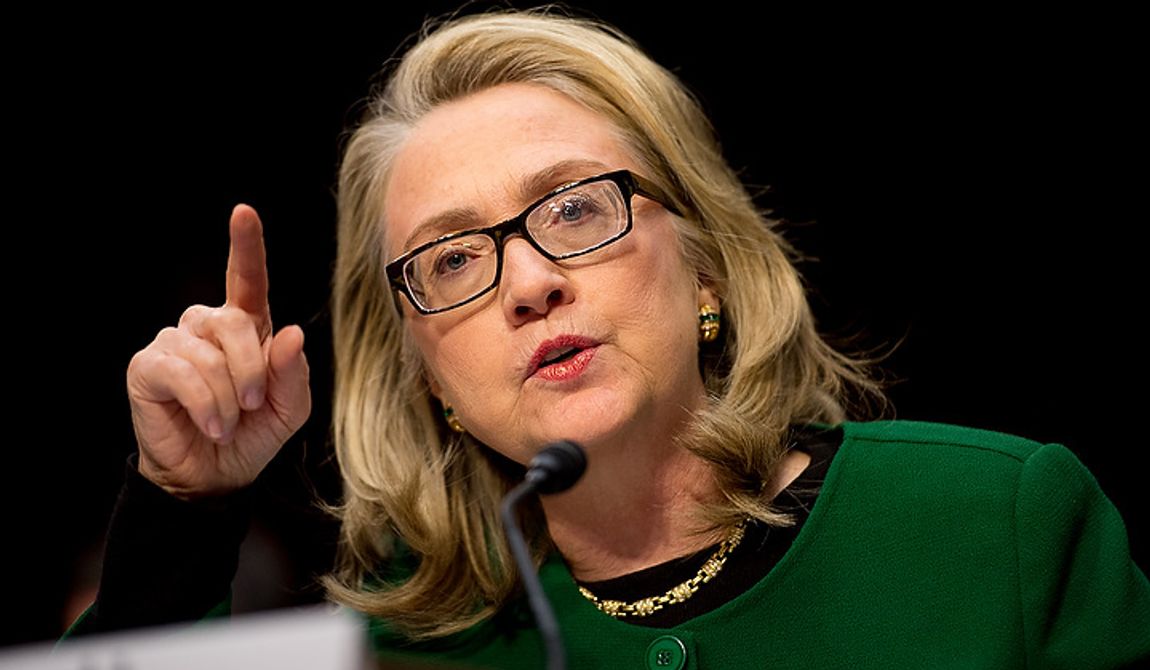
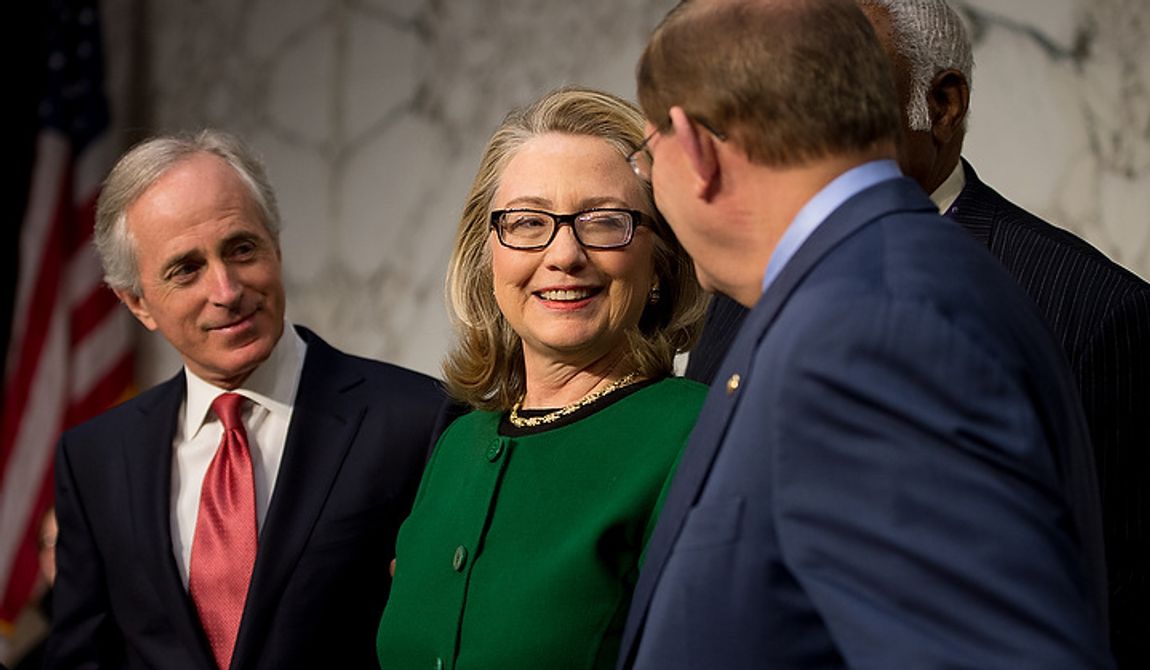
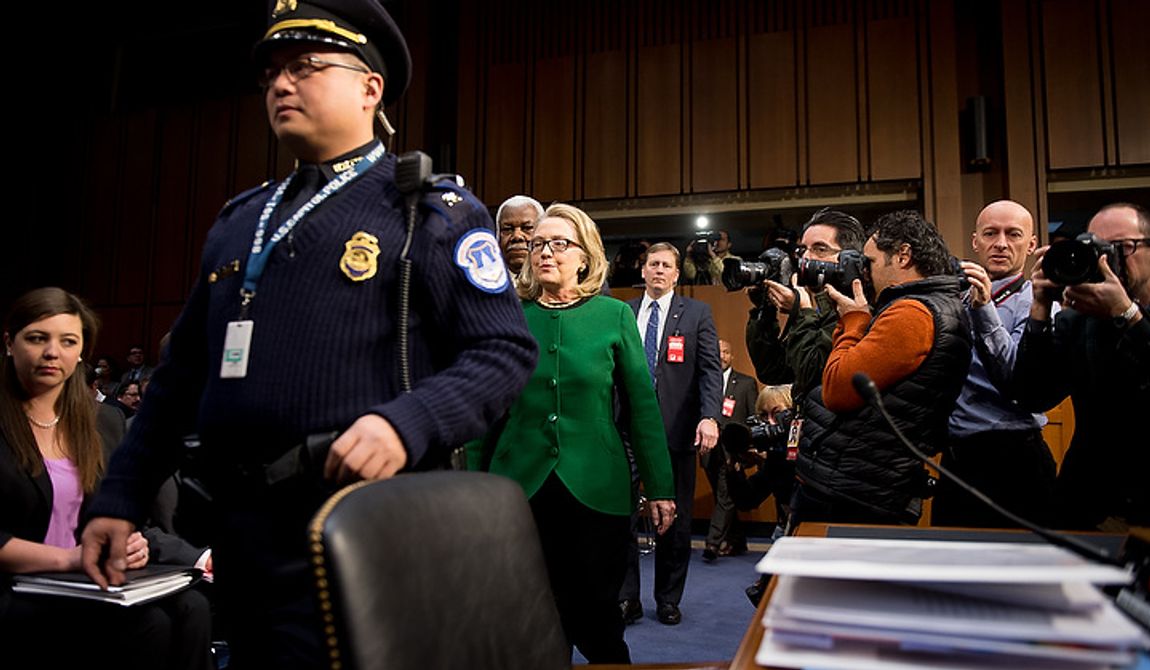

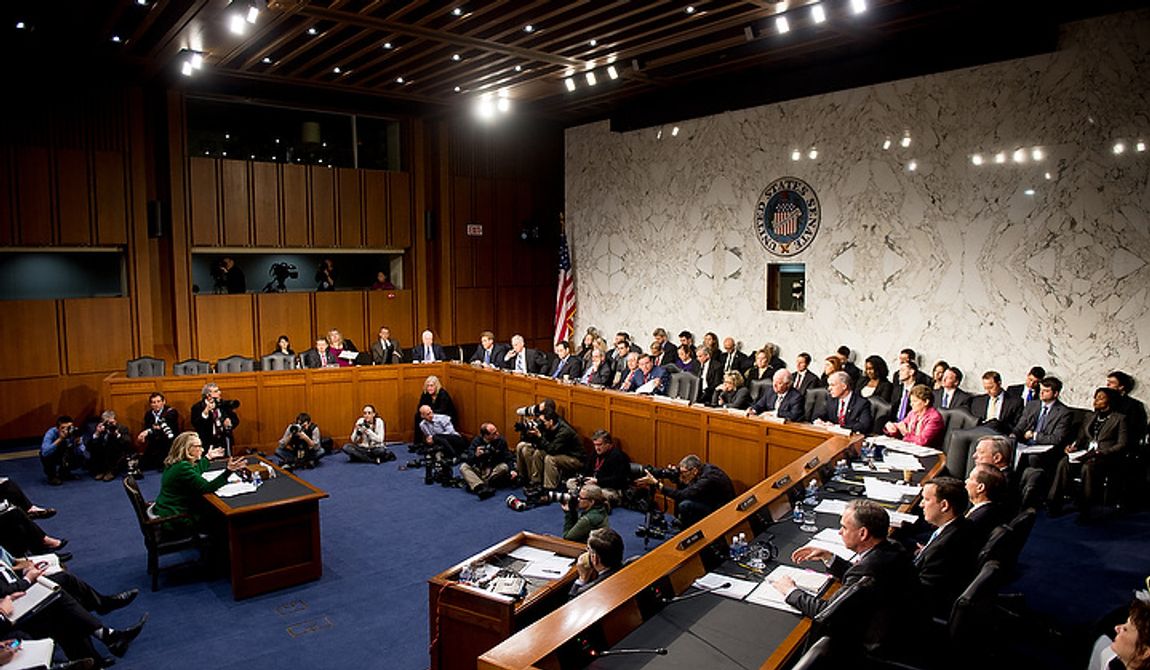
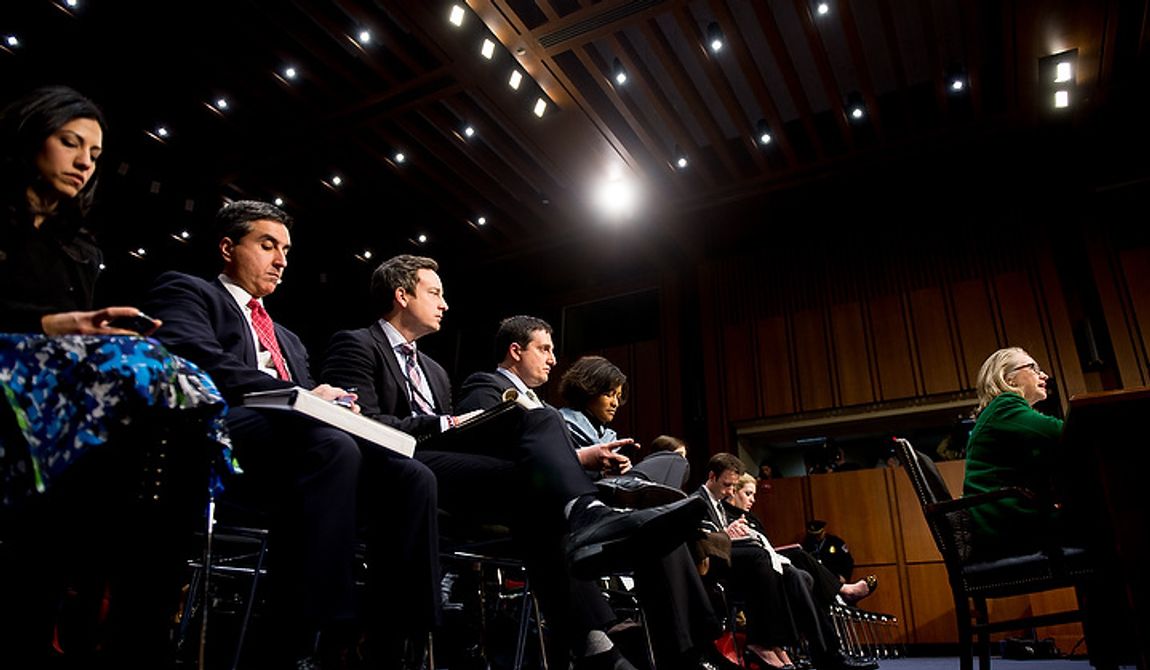

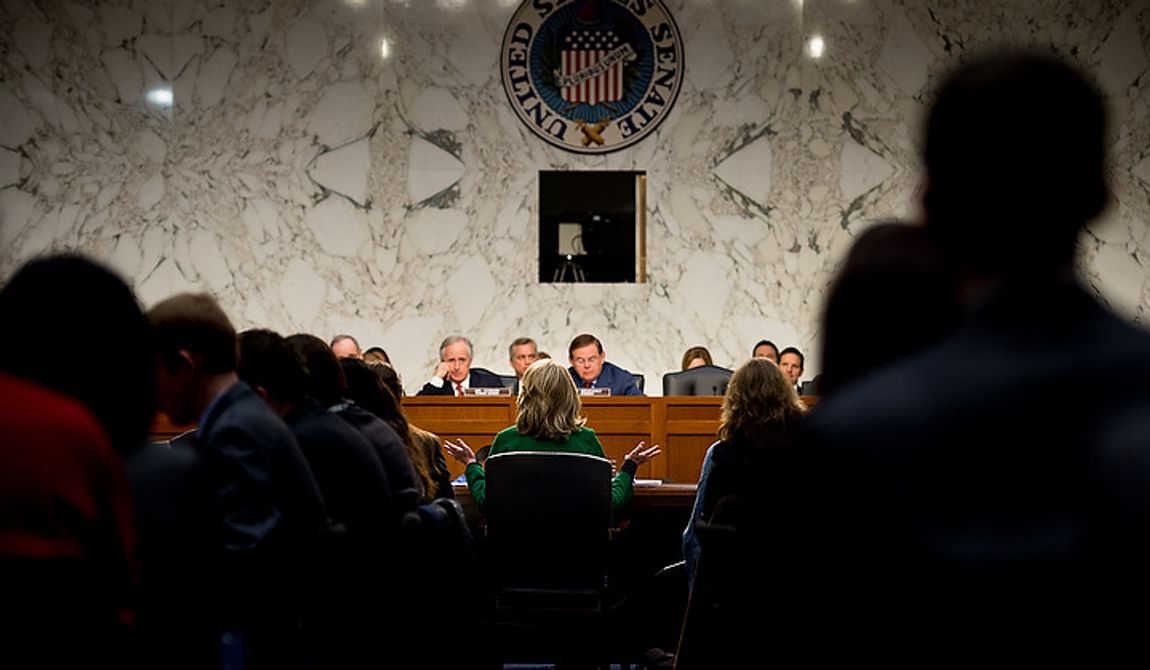
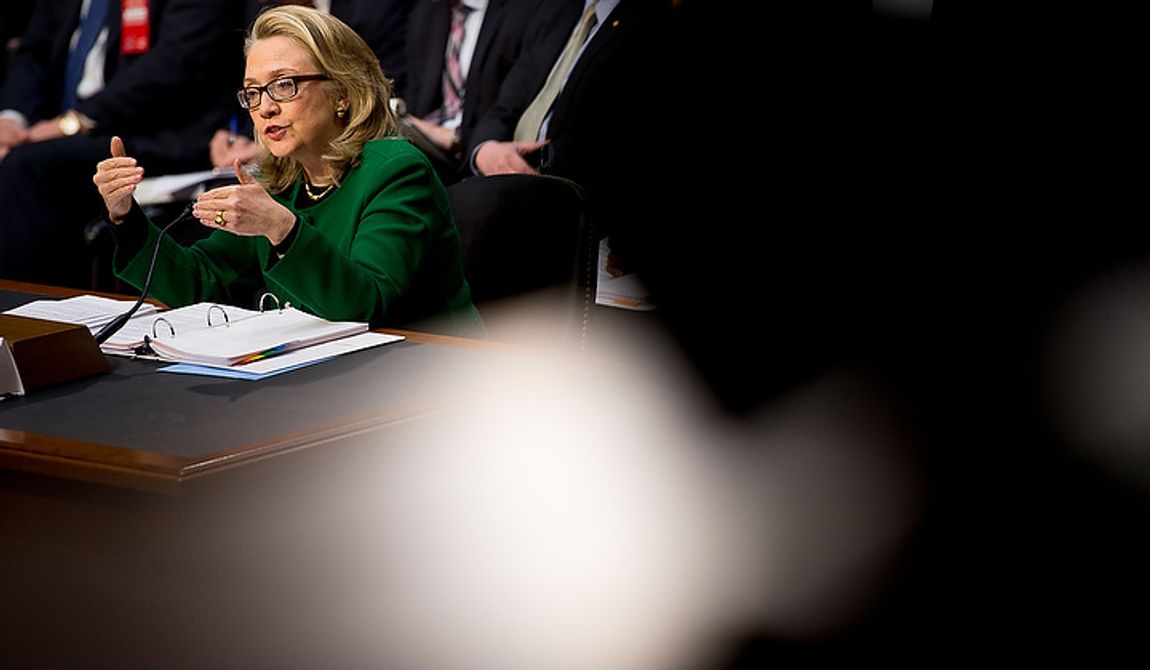
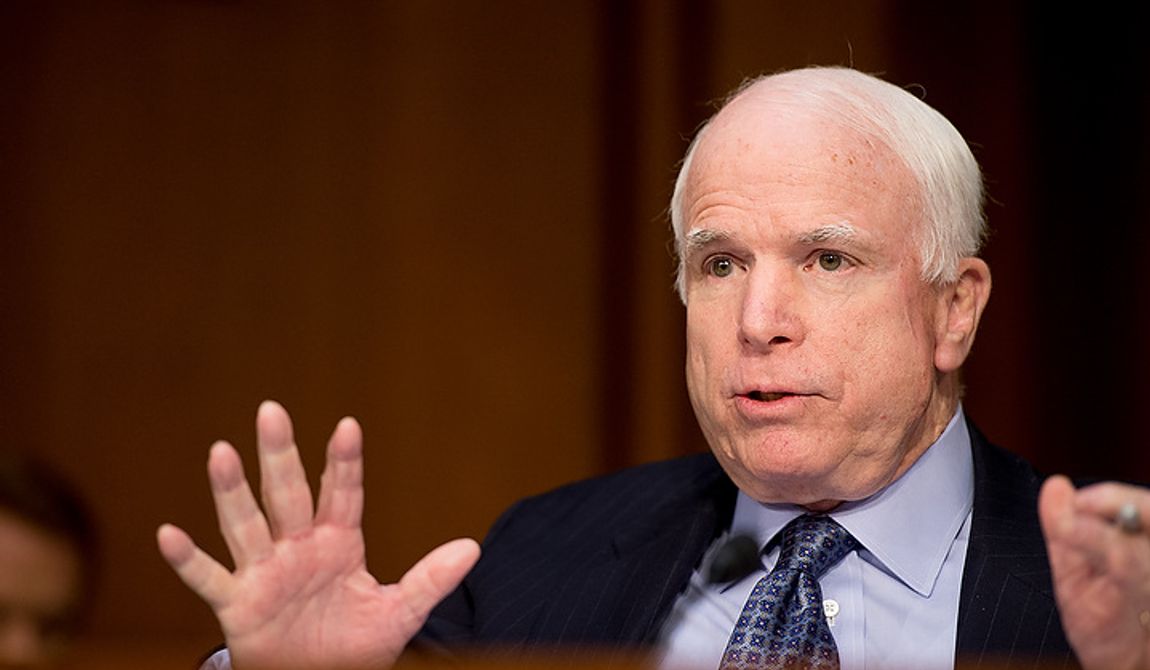
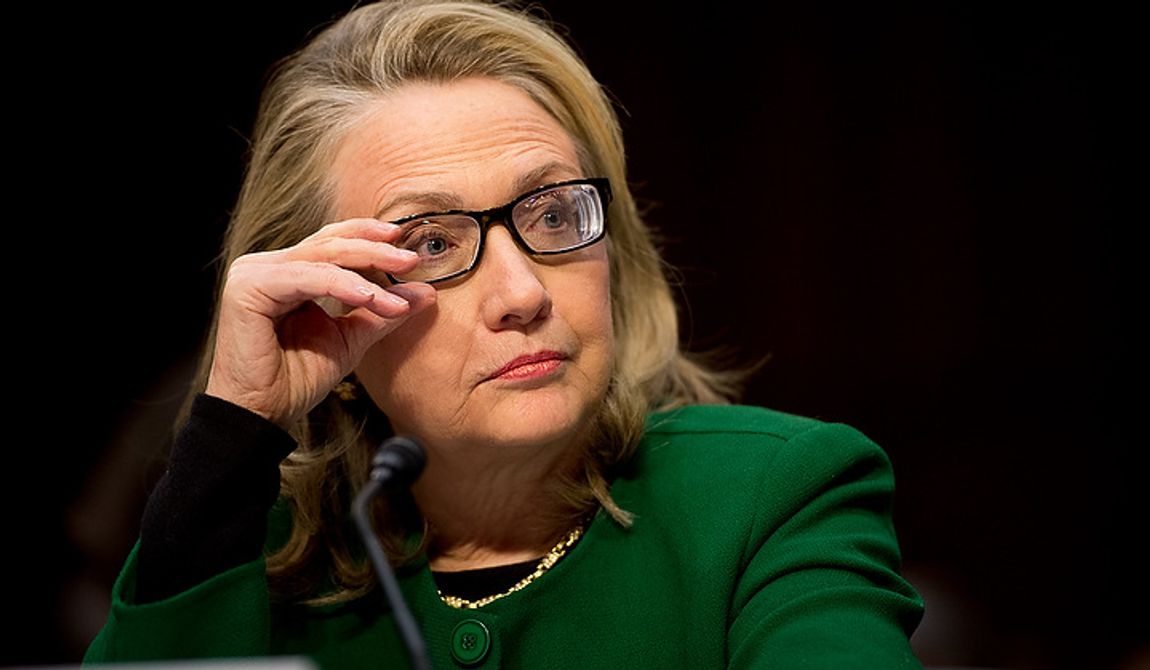
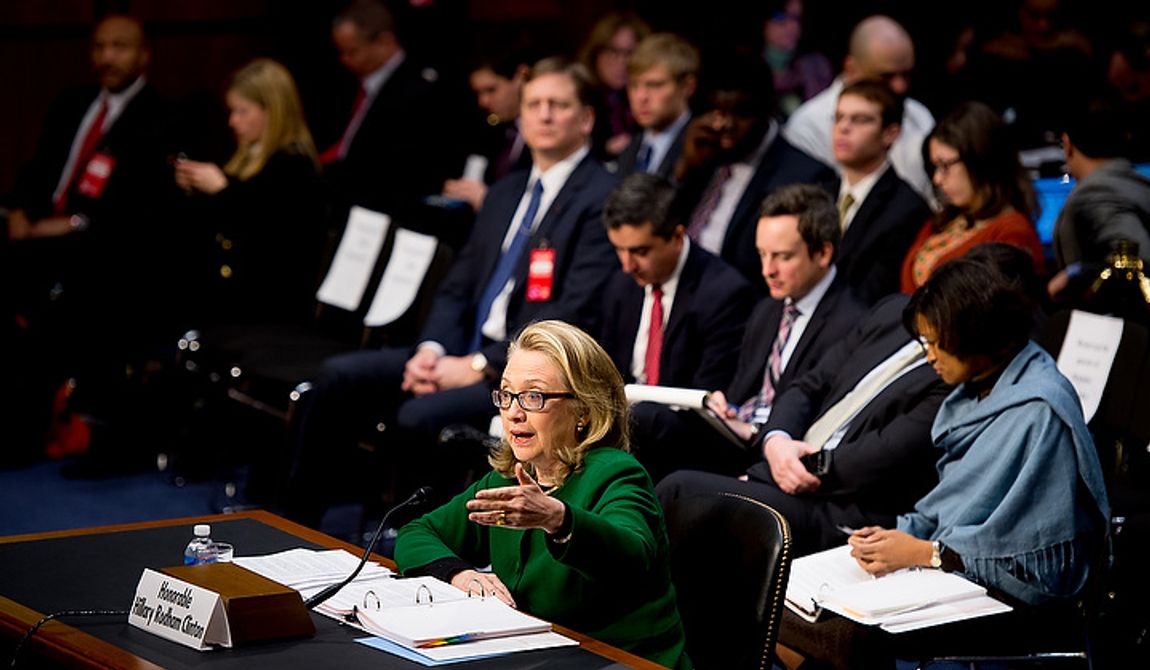
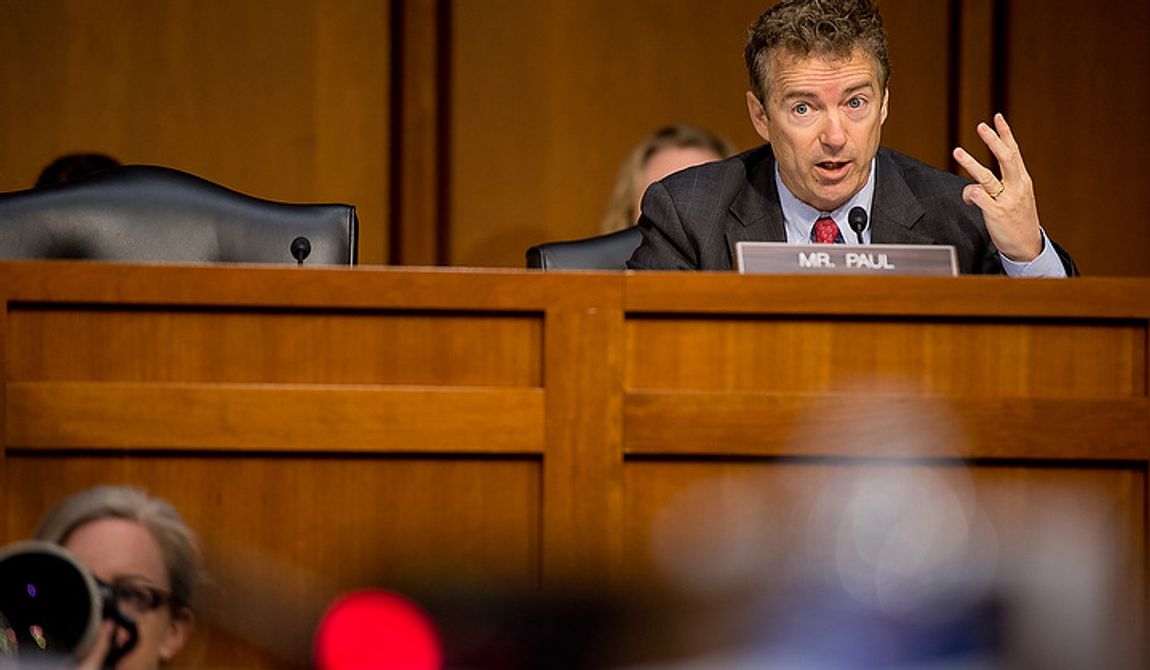
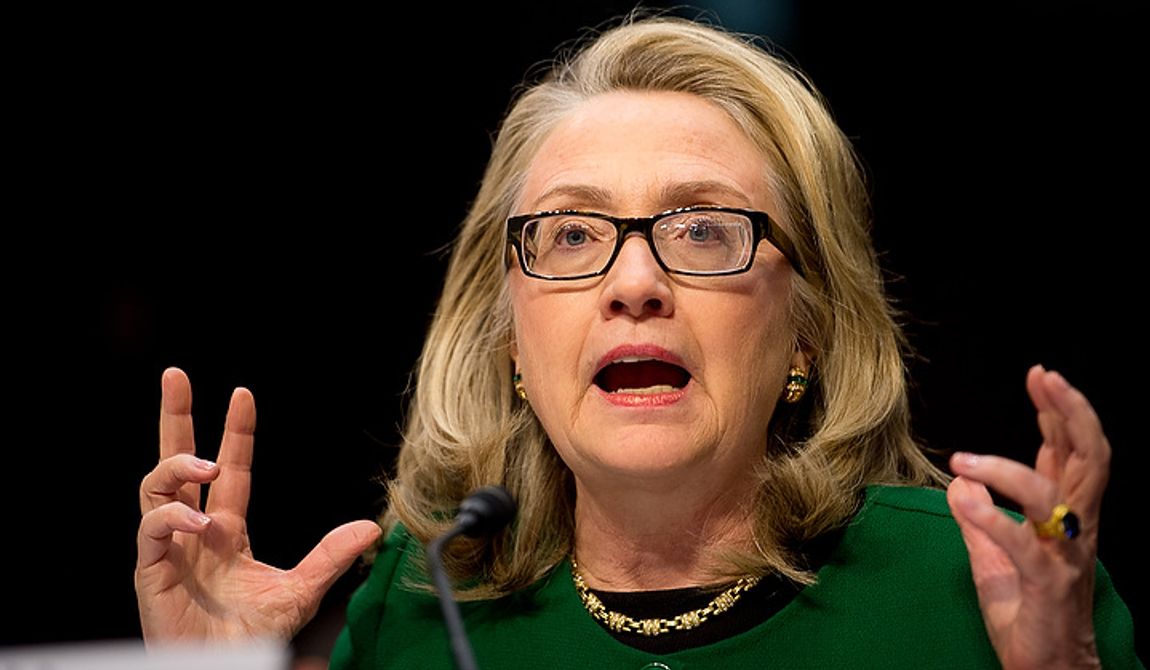
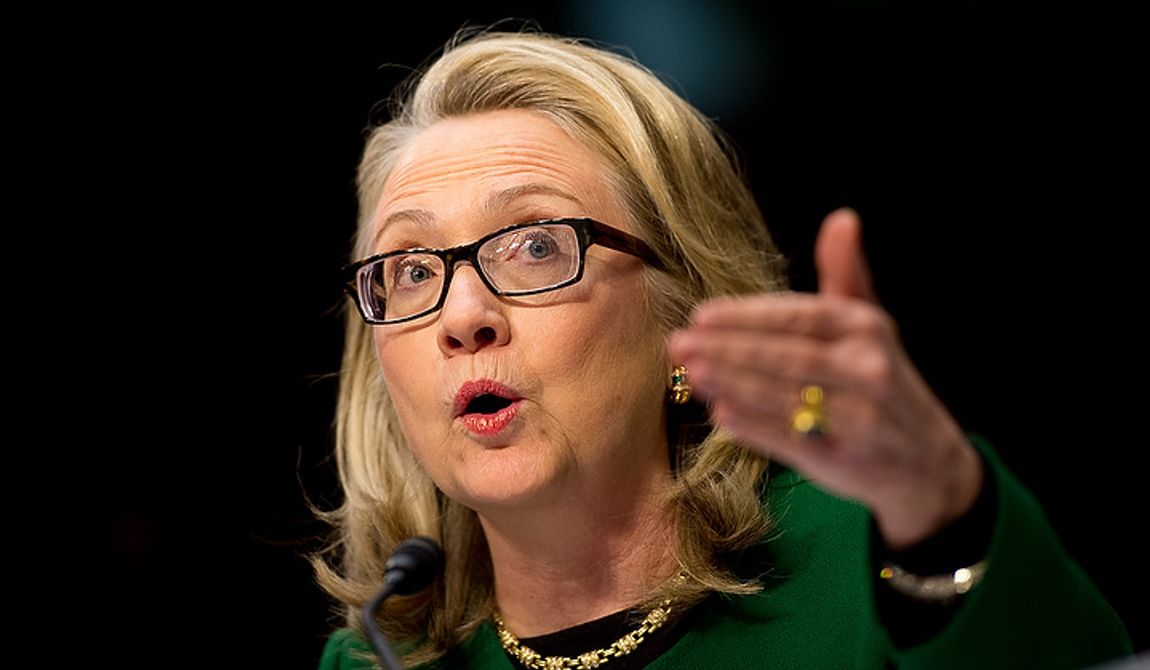
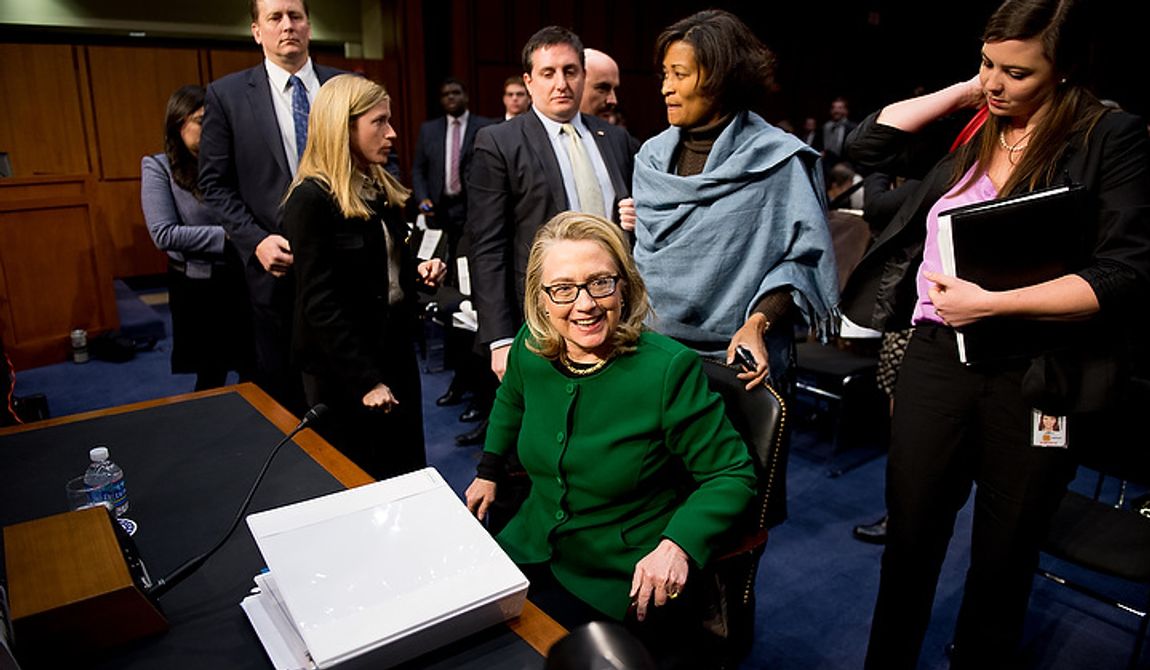

Please read our comment policy before commenting.